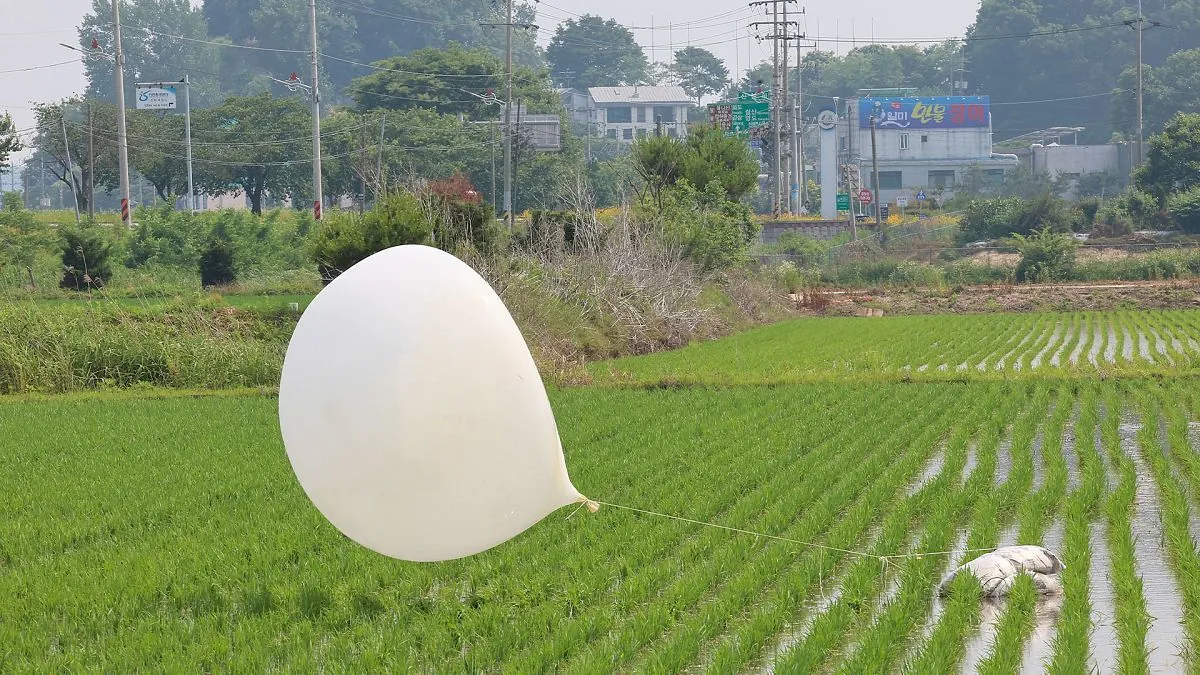South Korea's aviation sector has been grappling with an unusual challenge: trash-laden balloons launched by North Korea. Since June 1, 2024, the two primary airports serving Seoul - Incheon and Gimpo - have experienced multiple runway closures due to these airborne intrusions.
Yang Bu-nam, a Democratic Party member of parliament, revealed that over 20 separate days, runways at both airports were partially or fully closed for landings, takeoffs, or both. The cumulative closure time reached 413 minutes, significantly impacting airport operations.
This balloon campaign is not a new phenomenon in the Korean peninsula. Balloon propaganda campaigns have been utilized by both Koreas since the 1950s, reflecting the ongoing tensions between the two nations. The current situation, however, presents a unique twist with its use of trash as payload.
North Korea has reportedly launched over 5,500 balloons carrying trash bags since late May 2024. Pyongyang claims this action is in response to South Korean activists flying balloons with propaganda leaflets into the North. This tit-for-tat exchange highlights the complex dynamics of inter-Korean relations, which have remained strained since the Korean War ended in an armistice, not a peace treaty, in 1953.
The impact of these balloons extends beyond mere inconvenience. On June 26, 2024, Incheon International Airport - the world's fifth-busiest international airport and a crucial cargo hub - experienced runway closures totaling 166 minutes in a single day. More recently, on September 23, 2024, operations were suspended for 90 minutes. These disruptions have forced airlines to adapt their strategies, including carrying extra fuel to account for potential delays or diversions.
Incheon Airport, which opened in 2001 and is built on reclaimed land between Yeongjong and Yongyu islands, has consistently ranked among the world's best airports. This recent challenge tests its operational resilience. Similarly, Gimpo International Airport, formerly Seoul's main international gateway, has also faced disruptions, particularly affecting domestic flights.
The proximity of Seoul to the North Korean border - approximately 50 km - exacerbates the situation. This geographical reality underscores the security challenges faced by South Korea, a country that has transformed itself into one of the world's most technologically advanced nations since the Korean War.
South Korea's military has been monitoring the situation closely. While they track the balloons from launch using surveillance assets, they have not taken direct action to shoot them down, despite calls from some parliamentarians and civic groups. The military stated on September 23, 2024, that it was prepared for "stern military action" if North Korea "crossed the line," though specifics were not provided.
This balloon campaign occurs against the backdrop of broader geopolitical tensions. North Korea, officially the Democratic People's Republic of Korea (DPRK), follows a policy of Juche or self-reliance and faces international sanctions. In contrast, South Korea, or the Republic of Korea (ROK), has experienced remarkable economic growth, often referred to as the "Miracle on the Han River."
As both Koreas continue to claim legitimacy over the entire peninsula, this latest incident serves as a reminder of the ongoing complexities in inter-Korean relations. The trash balloon campaign, while seemingly innocuous, has managed to disrupt one of South Korea's key economic arteries, highlighting the intricate dance of provocation and response that characterizes the relationship between these two nations.
